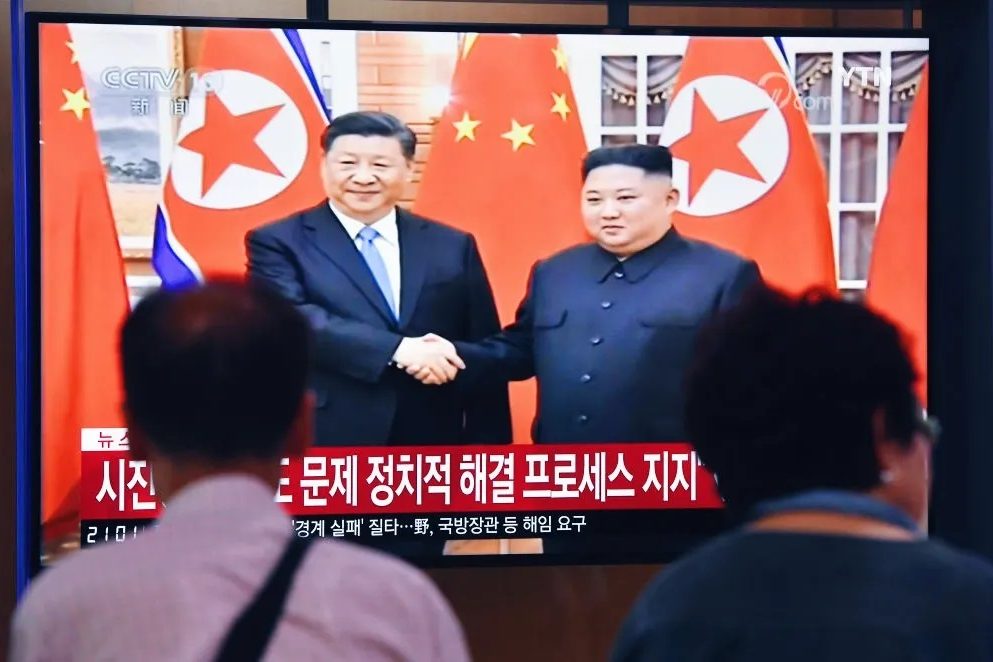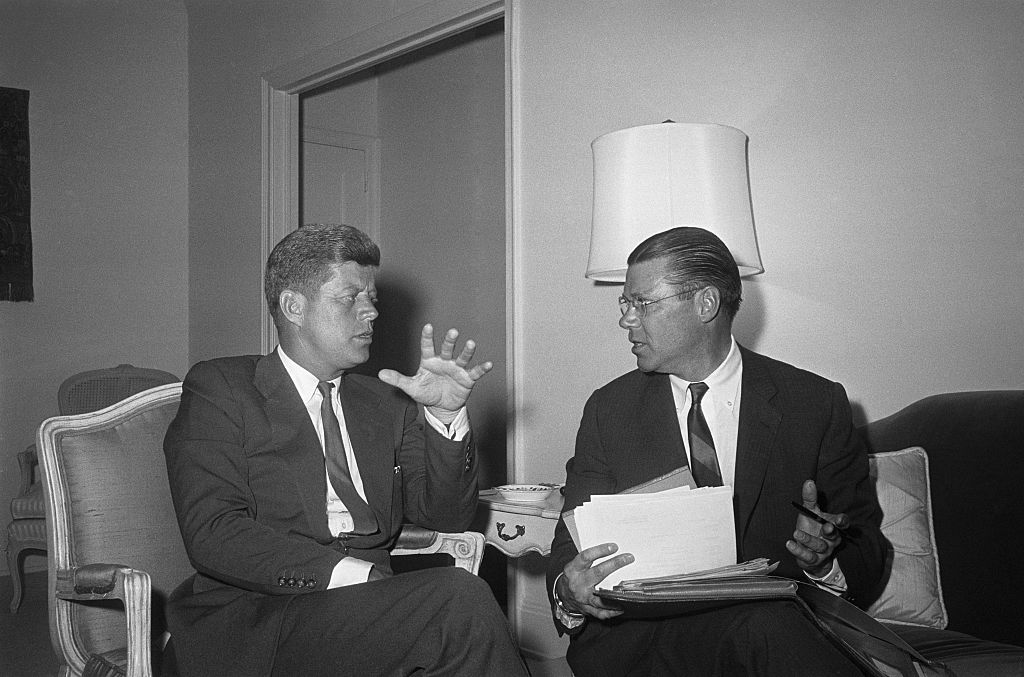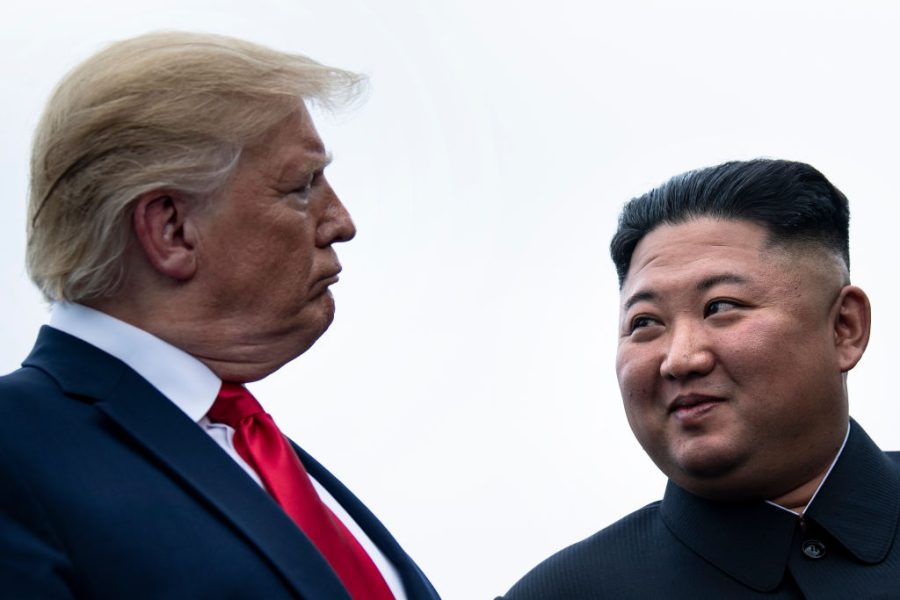Throughout the Russian invasion, China has, for the most part, refused to be drawn into the conflict. It has not condemned Russia or asked Putin to pull back (except when the threat of nuclear warfare was on the table). But it has also acquiesced to western sanctions and refrained from giving Russia lethal aid. In the meantime, the invasion has allowed Beijing to pull Moscow closer to its own economic orbit and use Russia’s gas reserves to secure its own energy imports. All this has come as western military and economic resources are bogged down in Europe, depleting the same resources which might eventually be turned to containing China in the Indo-Pacific. Win, win, win.
American officials will be making much of this divergence of interests
But the latest development in the war will make it harder than ever before for China to keep its distance from the conflict. According to American intelligence, North Korea has sent some 10,000 soldiers to Russia for training, most of whom are now deployed to the Kursk region and may see active combat in the coming days. This comes after Kim Jong-un visited Putin at a Russian spaceport in September last year, and the signing of a North Korean-Russian mutual defense pact earlier this year (going further than even Beijing and Moscow’s “no limits” friendship).
This is a new and unwelcome intercontinental dimension to the war, making any leverage that China has more vital than at any point in the conflict so far. Already, South Korea is considering sending lethal aid to Ukraine in response.
It’s no surprise, then, that Washington has repeated its pleas to Beijing to take a more active role in ending the conflict. Specifically, it wants Beijing to get a message through to Kim, and ideally dial down the North Korean support. The New York Times reports that this week senior State Department officials visited the home of the Chinese ambassador to Washington and held a meeting with Chinese counterparts discussing this issue over several hours. Could this escalation finally pull China into the conflict?
Washington has good reason to hope. China may be North Korea’s biggest benefactor in terms of aid and trade, but that’s less down to ideological alignment than the role North Korea plays as a crucial buffer zone between the PRC and America’s allies in the region (South Korea and Japan). So China winces whenever the Kim dynasty tests intercontinental missiles or ramps up its nuclear research. A war breaking out on the Korean peninsula or with Japan would not serve the interests of the world’s second largest economy as it tries to catch up with the first. Cynicism runs through Beijing’s foreign policy, best described as a “what’s in it for me?” mentality.
Little of this is new — behind the Iron Curtain, the triangular relations between Russia, China and North Korea have long been uneasy. Though Mao Zedong’s regime began by lauding the USSR as China’s “Big Brother,” it wasn’t long before the two communist juggernauts fell out and China actively prepared for the possibility of an invasion by the Soviets. Meanwhile, Kim Jong-un’s grandfather Kim Il Sung made much of his policy of “juche” — playing North Korea’s two communist neighbors against each other to maximize North Korean ransom.
In the twenty-first century, China is now the “Big Brother,” but the fraternity hasn’t got any less fraught. Beijing remains concerned that North Korea could make technological breakthroughs that will give its military threats real teeth. Is this the price that Kim has extracted for Putin in exchange for manpower? If so, could Beijing still have leverage over Pyongyang or prevent it firing off a nuclear warhead in a diplomatic huff?
American officials will be making much of this divergence of interests in their entreaties to their Chinese counterparts. One way to read the caginess of China’s official line on the issue is that Beijing is still deciding what to do. When asked whether China knew about the reports of the 8,000 North Korean soldiers sent to Kursk, the Foreign Ministry spokesman Lin Jianqiang claimed: “I don’t have information on the situation” and that “Russia and North Korea are two independent sovereign countries. How bilateral relations develop is their own matter.” When I asked an usually reliable senior military source about his views, his answer was revealing: “I haven’t decided what I think yet.”
China is likely waiting for the results of the American election before deciding what to do. And to intervene would be breaking with its traditional foreign policy habit — China has been reluctant to follow in the steps of America and become a “global policeman,” resistant to the idea that with its increasing power comes an increasing responsibility to ensure global stability. In fact, I’m told that one of the biggest surprises within the Chinese establishment since the outbreak of war in Ukraine was that the rest of the world (including Europe) expected China to take a position, according to the same military source. The traditional Chinese view is that this conflict is happening on a different continent and has nothing to do with Beijing. There are some within the Chinese side, now, who are calling for China to start taking a more active, constructive role in mediation.
In the end, the State Department’s hopes may fall flat on a simple calculus from Beijing, the same kind of logic that has stopped it from doing more to dissuade Russia — that to support the West in Ukraine would only expedite the pivoting of American military attention towards Asia. Xi may well decide that there is little harm in the warming of relations between Putin and Kim — so long as Big Brother can keep his little brothers under a watchful eye, and away from playing with the nuclear codes.
Hear more from Cindy Yu on her podcast Chinese Whispers. This article was originally published on The Spectator’s UK website.

























